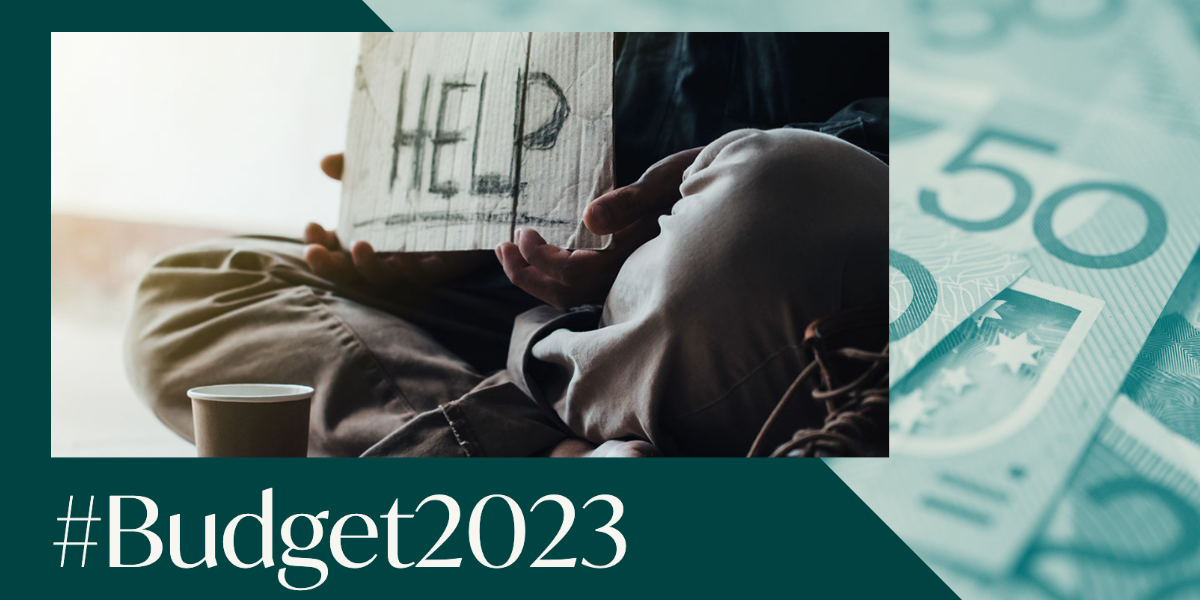The nation’s peak body for homelessness is urging the Federal Government to address surging homelessness and inadequate income support in tomorrow’s Budget.
Homelessness is rising rapidly in Australia with the latest Census revealing overall homelessness has increased five per cent between 2016 and 2021, and children’s homelessness has surged 12 per cent. Women and children make up 56 per cent of people experiencing homelessness.
The call comes soon after new research revealed that the housing stress and related poverty was escalating quickly across the New England, and the poverty rate here is much higher than Sydney. The research, commissioned by peak social service body NCOSS and conducted by the National Centre for Social and Economic Modelling (NATSEM) at the University of Canberra, found that the housing crisis is a key driver of poverty in regional areas, with mortgage holders experiencing the biggest increase in poverty, up by more than 80 per cent since 2016.
The report revealed the following key findings for New England:
- Armidale Surrounds (including Guyra): The poverty rates for homeowners with a mortgage has almost quadrupled since 2016 (was 3.9%, now 14.9%).
- Moree Surrounds: The poverty rates for people in the private rental market has tripled since 2016 (was 9.8%, now 30.3%).
- Glen Innes: The poverty rates for people in public housing has increased by almost 80% since 2016 (was 53.1%, now 94.5%).
- Inverell: The poverty rates for homeowners with a mortgage has more than doubled since 2016 (was 4.6%, now 10.1%).
- Inverell Surrounds – East: The poverty rates for people in the private rental market has more than doubled since 2016 (was 19.4%, now 51.7%) – now 1 in 2 renters are living in poverty.
In the past year even more people have been plunged into housing stress and homelessness as they navigate the perfect storm of housing market conditions. Record low vacancy rates and record high rental increases are hitting people on low incomes hard.
Meanwhile, income support payments are too inadequate to keep up with rising rents. After paying rent, young people on Youth Allowance only have $13 a day to cover food, transport, medicine, power and other bills. Almost half of all people who receive Commonwealth Rent Assistance are still in rent stress after receiving the payment. A modest increase in welfare benefits is expected in tonight’s budget, but it won’t keep pace with the surging rent.
CEO of Homelessness Australia Kate Colvin said the housing crisis is stretching budgets thin and making more people vulnerable to experience homelessness.
“We know housing stress is the fastest growing cause of homelessness in Australia. Rents are soaring, yet income support payments aren’t keeping up.”
“This is putting incredible pressure on household budgets and homelessness services.”
“People are making unhealthy sacrifices such as skipping meals, heating their homes and doctor appointments just to make the rent,” Ms Colvin said.
“This Budget is an opportunity to lift the people who are without a home, the many who are struggling to keep one, and those who are not too far off out of crisis. It’s an opportunity to create more stable and secure futures for individuals and families who’re battling the worst housing crisis.”
Treasurer Jim Chalmers will hand down his second budget at 7.30pm tonight.
Like what you’re reading? Support The New England Times by making a small donation today and help us keep delivering local news paywall-free. Donate now

